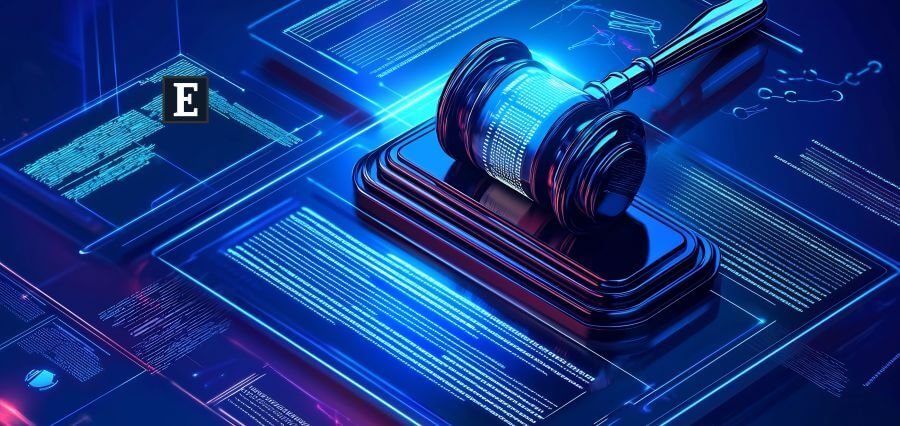Integrating Tech
The combination of blockchain technology with smart contracts enables many industries to improve their security measures, track components better, and operate faster. The massive deployment of blockchain technology using smart contracts creates numerous legal complications involving the authentication of validity and the authorization of legal operations and required standards. Strategic development processes by businesses require insight into blockchain regulatory standards to construct risk-management strategies.
Understanding Blockchain and Smart Contracts
Blockchain technology is an immutable distributed system of transactions that operates proactively on numerous devices at a time. Smart contracts have fixed rules that operate automatically on agreed conditions, encrypting on blockchain networks. The contract operates automatically as soon as specified conditions are triggered, enabling direct implementation without intermediaries and reducing the costs of transactions.
Blockchain provides mechanisms of security and efficiency but creates legal issues that conventional regulation is not able to control effectively. Smart contracts have been difficult for the conventional legal system since they are implemented without human involvement.
Legal Recognition and Enforceability
Blockchain technology is an untouchable network of transactions working constantly across many devices simultaneously. Smart contracts already contain programmed instructions which, based on the met conditions, operate autonomously in blockchain networks. The agreement occurs autonomously as soon as there are conditions necessary to facilitate it without middle parties and cuts costs.
Blockchain initiates security and efficiency provisions but raises legal concerns that standard regulations cannot deal with efficiency. Smart contracts have proved difficult to manage through traditional legal provisions as they execute autonomously without any interference by humans.
Jurisdictional Challenges
Decentralization using blockchain makes jurisdiction and regulation in law more challenging. Unlike classical contracts involving specific legal regimes, smart contracts are found in numerous nodes geographically dispersed around the globe. Identifying the applicable legal system when there is discord is a challenging issue.
For instance, in case of a dispute in a smart contract among the parties of two nations, whose court will determine the case? The traditional contract laws are geographically positioned, while blockchain transactions can involve anonymous parties from various locations. It poses questions regarding enforcing legal rights and determining cross-border disputes effectively.
Regulatory and Compliance Concerns
Regulatory authorities globally are struggling to determine how to govern blockchain transactions. Adherence to financial regulations, anti-money laundering (AML) legislation, and Know Your Customer (KYC) rules is a key concern.
All the blockchain transactions function without the central authority, and it is challenging to monitor illegal actions. Governments are adopting stricter controls to meet present financial regulations. For example, the Financial Action Task Force (FATF) has provided guidelines that compel blockchain service providers to follow AML and KYC standards.
Further, data protection laws like the General Data Protection Regulation (GDPR) of the European Union present a challenge to blockchain, which is based on immutability. GDPR provides citizens with the right to have their personal information deleted, which goes against the permanent book-keeping feature of blockchain. Finding the middle ground between compliance and innovation remains a challenge for regulators as well as business organizations.
Liability and Smart Contract Failures
Smart contracts, as able as they can be, are never going to be risk-free. With bugs, security loopholes, and even the unforeseen possible reasons for contract failure, should this occur, assigning culpability gets tricky.
Historic contracts provide room for judicial interpretation when the circumstances shift or become ambiguous. Smart contracts run with severity in a programmatic code form and contain no room for human interpretation. Severity of this sort may have collateral consequences, for example, loss of funds due to program error.
Businesses using smart contracts need to be endowed with security features, such as robust code reviews, fallbacks, and legal contracts that supplement the implementation of smart contracts. There needs to be accountability in the event of a failed contract for wide adoption.
The Future of Legal Frameworks for Blockchain
As technology advances in blockchain, governments and courts attempt to create more defined legal systems. Few territories like Malta, Switzerland, and Singapore have even enacted blockchain-focused laws to cultivate innovation while creating legal protection.
Global legal standardization is also being pursued to solve the jurisdictional issue of blockchain’s permeability. The corporate chiefs and governments must come together to provide regulatory clarity so that businesses can harness the potential of blockchain without any uncertainty of the law.
Adapting Legal Systems for Blockchain Innovation
Blockchain and smart contracts offer unmatched value but create underlying legal problems. Questions relating to enforcement, jurisdiction, compliance, and liability must be solved to have a successful adoption.
As models of regulation shift, companies and lawyers must get ahead of the curve and up to speed to address the challenges of blockchain law. The professionals who can identify and adapt to such legal technologies will be best positioned to harness blockchain’s disruptor power.
Stay Legally Informed
Are you planning for the legal frontier for blockchain? Stay ahead of the curve with advice from legal professionals, tracking regulatory developments, and using best practices in compliance.
Read Also: The Science of Gamification in Education

